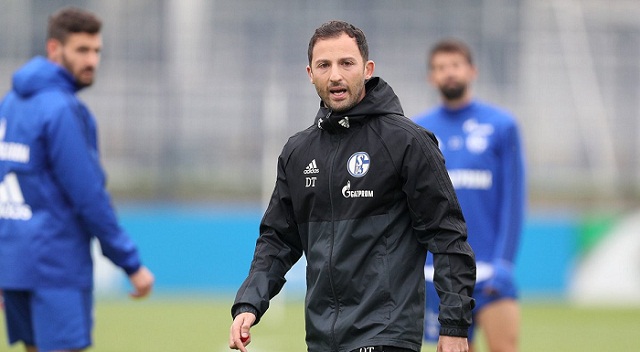
Gelsenkirchen, Germany | AFP | Schalke 04 are a sleeping giant in the German league, yet their youth academy is one of Germany’s most successful, producing World Cup winners, Bundesliga stars and Premier League exports.
Germany has just qualified for Russia 2018, where they will defend the World Cup title they won in Brazil when four former members of Schalke’s academy were in the squad.
Bayern Munich goalkeeper Manuel Neuer, Arsenal playmaker Mesut Ozil, Juventus defender Benedikt Hoewedes and Paris Saint-Germain midfielder Julian Draxler all came through the Gelsenkirchen club’s youth set-up.
Schalke 04 are nicknamed “The Miners” due to Gelsenkirchen’s industrial setting and their youth academy, called the “Miners’ Forge”, has a long list of talented alumni.
Manchester City winger Leroy Sane, 21, Liverpool defender Joel Matip, 26, and Arsenal left-back Sead Kolasinac, 24, are just some of its graduates.
The latest starlet to rise from the academy to Schalke’s senior squad is 19-year-old Weston McKennie, a future US international in the making.
But what attributes make a future professional or a World Cup winner?
“Talent is important, but that only gets you through the door,” Norbert Elgert, coach of Schalke’s Under-19 team, told AFP.
– Have a ‘Plan B’ –
“Athleticism and skills as a team player are all important. Then there are also things which are often overlooked — character, personality, desire to improve.
“You have to have the confidence to elbow your way up in a squad of 25 to 30 players, or you have no chance, but then you still have to be a team player.”
The 60-year-old has seen an impressive list of names roll off the production line at Schalke since 1996.
Elgert is passionate about coaching and, with his flowing grey locks, adopts a father-figure role.
“We put a lot of emphasis on education, right up to ‘Abitur’ (university entry qualifications),” he said.
“We encourage that because what percentage actually make it? — Four or five percent maximum will be Bundesliga footballers.
“Whenever I speak to a player about their future, I always ask, ‘what is your Plan B?’
“We have to look past football, for those who don’t make it, get injured or get sick.”
His success with Schalke attracted an offer a few years ago from Bayern Munich, but Elgert, who was born in Gelsenkirchen, opted to stay.
He said Germany’s ability to produce talented young players stems from the lessons learnt from mistakes in years gone by — namely Euro 2004, when die Mannschaft failed to qualify from their group.
“It was important for us to learn from the past,” said Elgert.
“It wasn’t just enough for German teams to be organised, we were overtaken by countries like Spain, Holland or Italy.
“The German Football Association (DFB) has been very innovative with the academies and always kept an eye on what is going on in other countries.”
He clearly has strong links to his former players and eagerly asks how Ozil and Kolasinac, who joined Arsenal in June, are regarded in England.
His eyes light up when he describes spotting talent — like the teenage Ozil.
 The Independent Uganda: You get the Truth we Pay the Price
The Independent Uganda: You get the Truth we Pay the Price



